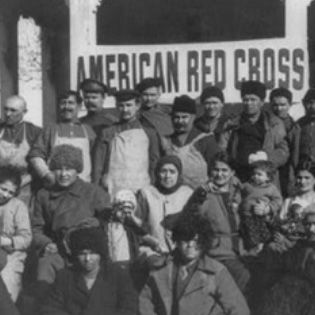The League of Nations @ 100: Humanitarian Histories
- Location
- Alan Waters Building - Room 103
- Dates
- Thursday 23 January 2020 (14:30-16:30)

A Centre for Modern and Contemporary History Roundtable, in partnership with POLSIS, BRIHC, and The Centre for Modern History at City, University of London.
-
Dr Jeanne Morefield (UoB): “Families of Mankind”: The League of Nations, the Traffic in Women and Children, and the Birth of International Order.
-
Dr Jasmin Nithammer (UoB): Poland, the League of Nations and the Fight against Traffic in Women and Children.
Speaker biographies and abstracts:
Dr Jeanne Morefield is a Senior Lecturer in the Department of Political Science and International Studies at the University of Birmingham and a Non-Resident Fellow at the Quincy Institute. She is the author of “Empires Without Imperialism: Anglo American Decline and the Politic of Deflection” (2014), “Covenants Without Swords: Idealist Liberalism and the Spirit of Empire” (2005), and “Empire as Method: Edward Said and Political Theory” (forthcoming). Her next project, “Trafficking and the Politics of World Order,” examines the historical and contemporary salience of human trafficking (as a humanitarian issue) for the politics of liberal world ordering.
Abstract
This talk explores the League of Nations’ long-standing interest in the traffic in women and children and the internally fraught politics of the Committee on the Traffic in Women and Children. I argue that a close look at the Committee’s work provides a remarkably rich portrait of the ideological instability circulating within an institution striving to invent itself and differentiate its project from that of European imperialism.
Dr Jasmin Nithammer is a historian of modern Eastern Central European history. She received her PhD in 2016 from the Justus Liebig University Giessen (Germany) for her thesis “Borders of Socialism on Land and at Sea”, comparing the Czechoslovakian land border and Polish sea border as borders of the so called ‘Iron Curtain’. She is currently a research fellow at the University of Birmingham in the project “The Fight Against the Traffic in Women and Children in Interwar Poland” (funded by the Fritz Thyssen Stiftung).
Abstract
This paper focuses on the instrumentalization of the fight against traffic in women and children in the Second Polish Republic in the context of the coordinated efforts of the League of Nations. It highlights how international and transnational activism affected the construction of state institutions in Poland.
This event is the first of two roundtable workshops on the League of Nations @100; the second takes place at City, University of London on the theme: Self/Determination: Emotions, Law and the League of Nations @ 100 on Thursday 30 January 2020 in D112, Rhind Building at 5.00pm-7.00pm
Dr Ilaria Scaglia (Aston) will speak on “Feeling Internationalism at the League of Nations and Beyond” & Dr Maja Spanu (Cambridge) will speak on “The Hierarchical Society: The Politics of Self Determination and the constitution of new states after 1919”.
University of Birmingham students and staff are welcome to attend the City workshop and some limited support is available from the Centre for Modern & Contemporary History to meet the cost of travel. Please contact Dr Simon Jackson (S.Jackson.1@bham.ac.uk) for more details.